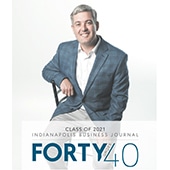New Fiduciary Rule Takes Effect for HSAs

OVERVIEW
In April 2016, the Department of Labor (DOL) released a that expands who is considered a “fiduciary” when providing investment advice to retirement plans and their participants. The final rule’s guidance also applies to individual retirement accounts (IRAs) and health savings accounts (HSAs). After being delayed, the final rule became effective on June 9, 2017.
Under the rule, a person is a fiduciary if the person receives compensation for providing investment advice with the understanding that it is based on the particular needs of the person being advised or that it is directed at a specific plan sponsor, plan participant or account owner. Fiduciary status is significant because fiduciaries are required to act in their clients’ best interests and may be held personally liable in the event of a fiduciary breach.
ACTION STEPS
Individuals who provide advice on HSAs may be considered fiduciaries if their communications rise to the level of investment recommendations covered by the final rule. Employers should review their arrangements with HSA service providers to determine if the providers will qualify as fiduciaries under the new rule. Advisors should also review their business practices in light of the final rule’s expanded definition and make any necessary modifications.
Fiduciary Role
The Employee Retirement Income Security Act (ERISA) and the federal Internal Revenue Code (Code) impose standards of conduct on individuals who manage an employee benefit plan and its assets, who are called fiduciaries. For example, fiduciaries are required to act prudently and solely in the interest of plan participants and beneficiaries. Fiduciaries can be held personally liable for losses when there is a fiduciary breach of duty. In addition, certain transactions are prohibited in order to prevent dealings with parties who may be in a position to exercise improper influence over the plan.
Under ERISA and the Code, people who give investment advice for a fee are considered fiduciaries, regardless of whether that fee is paid directly by the customer or by a third party.
According to the DOL, the final rule compels more investment advisors to put their clients’ best interests first by requiring them to comply with federal fiduciary standards and the prohibited transaction rules. It also distinguishes activities that are not investment advice, like education. In addition, the final rule includes certain exemptions from the prohibited transaction rules, including a best interest contract (BIC) exemption that allows common types of compensation to be paid if the terms of the exemption are satisfied.
Effective Date
The final rule’s expanded definition of fiduciary originally was set to take effect on April 10, 2017. However, this effective date was delayed by 60 days—until June 9, 2017—in response to a issued by President Donald Trump that directed the DOL to re-examine the final rule and consider whether it should be revised or rescinded. Although the final rule became effective on June 9, 2017, the DOL has indicated that the rule’s requirements may not align with President Trump’s deregulation goals and that changes may be proposed in the future. On June 29, 2017, the DOL issued a request for comments in connection with its continued examination of the final fiduciary rule.
Other provisions of the final fiduciary rule related to prohibited transaction exemptions for investment advisors are scheduled to take effect on Jan. 1, 2018. Until this time, HSA investment advisors that rely on the BIC exemption will only be required to comply with the exemption’s impartial conduct standards.
Temporary Enforcement Policy: On May 22, 2017, the DOL announced a temporary enforcement policy with respect to the final rule. Until Jan. 1, 2018, the DOL will not pursue claims against fiduciaries who are working diligently and in good faith to comply with the fiduciary rule and its prohibited transaction exemptions, or treat them as being in violation of the final rule and its exemptions.
The DOL has also stated that its general approach to implementation of the final rule will emphasize assisting (rather than penalizing) plans, plan fiduciaries, financial institutions and others who are working diligently and in good faith to understand and comply with the final rule and its exemptions.
Covered Employee Benefits
In addition to ERISA plans and IRAs, the final rule covers HSAs, Archer medical savings accounts, Coverdell Education Savings Accounts and ERISA-covered 403(b) plans. While acknowledging that HSAs generally hold fewer assets and may exist for shorter durations than IRAs, the DOL determined that HSA owners are entitled to receive the same protections from conflicted investment advice as IRA owners. The DOL also recognized that HSAs may have associated investment accounts that can be used as long-term savings accounts for retiree health care expenses.
In addition, the DOL clarified that the final rule does not apply to recommendations to welfare plans (such as health plans, disability plans or term life insurance) where they do not contain an investment component.
Investment Advice
Under the final rule, a person is a fiduciary if the person receives compensation for providing investment advice with the understanding that it is based on the particular needs of the person being advised or that it is directed to a specific plan sponsor, plan participant or account owner.
Investment advice includes:
- Investment recommendations, which means advice on buying, holding, selling, or exchanging securities or other investment property, or advice on investing securities or other property after a rollover or distribution from a plan.
- Investment management recommendations, which means advice on investment policies or strategies, portfolio compensation, selection of others to provide investment advice or investment management services, selection of investment account arrangements (for example, brokerage versus advisory), or recommendations with respect to rollovers, transfers or distributions from a plan or IRA.
Under the final rule, a recommendation means “communication that, based on its content, context and presentation, would reasonably be viewed as a suggestion that the advice recipient engage in or refrain from taking a particular course of action.” The more tailored the communication is to a specific recipient, the more likely that the DOL is to view it as a recommendation.
Also, to become a fiduciary, the person providing the investment advice must:
- Represent or acknowledge that he or she is acting as a fiduciary under ERISA or the Code;
- Provide investment advice pursuant to a written or verbal agreement, arrangement or understanding that the advice is based on the particular needs of the advice recipient; or
- Direct investment advice regarding the advisability of a particular investment or management decision to a specific recipient(s).
Exceptions
In the final rule, the DOL clarifies that some common communications do not meet the definition of “recommendation,” and, thus, do not constitute fiduciary investment advice.
| Investment education | A plan sponsor, service provider or others can provide investment educational information without becoming a fiduciary. |
| General communications | General communications that a reasonable person would not view as an investment recommendation, such as general circulation newsletters, remarks or presentations in widely attended speeches and conferences or general marketing materials, are not investment advice. |
| Platform providers | Service providers or third-party administrators that offer a “platform” or selection of investment alternatives for a defined contribution retirement plan (for example, a 401(k) plan) without regard to the individualized needs of the plan, its participants or beneficiaries are not providing investment advice. |
The final rule explains that a plan sponsor’s employee does not become a fiduciary by providing advice to a plan fiduciary or to another employee, provided the person receives no fee or other compensation, direct or indirect, in connection with the advice beyond the employee’s normal compensation for work performed for the employer.
This exclusion also covers communications between employees, such as human resources department staff who communicate to other employees about the plan and its distribution options, as long as they meet certain conditions (that is, they are not registered or licensed advisors under securities or insurance laws and only receive their normal compensation for work performed for the employer).
The DOL’s final rule also includes some broad exemptions that are intended to provide fiduciary advisors with flexibility to continue many common fee and compensation practices, as long as certain protections are in place to ensure that their advice is in their clients’ best interest.
More Information
The DOL’s on the final rule includes links to the final rule and related prohibited transaction exemptions. It also includes links to on the final rule and fact sheets that describe the final rule’s requirements.







